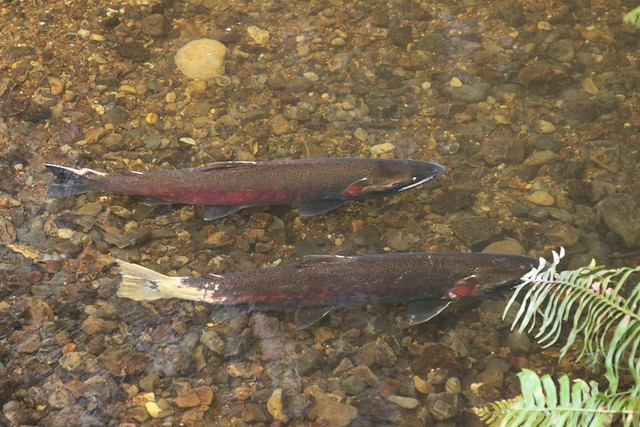
Here’s the thing. People like you and me, we admire beavers because they’re interesting and hardworking and family oriented and quirky and peaceful and just plain cool. We like their tails and their paws and their noses and their fur. We like the graceful ‘V’ they make when they swim, the line of bubbles they blow under water, the determination with which they sometimes walk on two feet, and the way that the flourish their tail makes when they dive looks like the flirty skirts of a spanish dancer. We love to hear their uniquely wordless whine because it always speaks volumes and we start to feel sad when its been a year since we saw a new kit or a tail slap.
But there are other folks in the world that are not beaver-centric. (Surprising, I know.) Some of them powerful folks. Folks with a vision. Folks that see beavers as a MEANS to an END. These are people who who look at these furry engineers as a cheap way to get back the habitat they need for the one thing they care about (and it ain’t furry). For them, beavers are like that guy you dated in college so that you could go to that party where the guy you really liked was playing bass. Beavers are useful because of what they bring. They’re nature’s Santa Claus. What do I think about this idea of purposefully using beavers to remake the streams we ruined 200 years ago?
All I can say is, WELCOME TO THE FAM!
When we talked wild coho habitat on the North Oregon Coast a couple of days ago here, we talked about silvers’ need for slow, slackwater areas off the main channel or on the edges for fry and parr to feed, ride out high-flow events, conserve energy, and grow into big angry smolts before heading down to the salt.
Beavers make that habitat, and they do it better, cheaper, and a gajillion times more efficiently than humans could ever hope to. The little buggers are aggressive too, and busy. They work at night, on holidays, and in all kinds of weather. Don’t eat much. Just some ol’ wood’l do.

Ever-growing stacks of science bears this relationship out, and the numbers are pretty much just nuts. We’re talking percentages up into the 80s and 90s of coho production potential lost in areas where beavers have been eradicated, and conversely, similar numbers of gains where they’ve been restored – way better than human-engineered projects, often off-the-page better. And when you consider that North American beaver populations have gone from anywhere from 100 million or two down to a few million since we started trapping the crap out of them back in the late 1800s, it’s not a stretch to translate that into a big hit against wild salmon.
Alan Moore
What a delightful article! Go read the whole thing which describes a beaver project in the Necanicum Watershed where they’re enticing beaver back by just planting some willow. With adequate food, the beavers will stick around, making dams, pools, channels. salmonid habitat and ultimately more beavers. As I’ve said many times before, beavers are actually the trickle-down economy that works (and works and works). The project is a joint effort by the Tualatin Valley Chapter of Tu, the North Coast Land Conservancy, and the Jubitz Family Foundation. But why stop at three? Since beavers increase habitat for waterfowl, migratory and songbirds why not include Ducks Unlimitied or Audobon? Since beavers are feeding all kinds of mammals with the increased fish population why not include Fish and Game or Nature Conservancy? You see how the list of friends can expand? Climate change? Water quality? Red-legged frogs? Meadows and wildflowers?
Note that these folks are in Oregon and California needs to follow suit. Still, why limit ourselves to regional efforts? Why not let the powerful fishing lobby force the entire pacific northwest to make these changes across three states and expand our beaver population to what it used to be, getting ourselves better creeks. healthier water and drought insurance at the same time?
But for the record, I, for one, still just think beavers are cool.







































